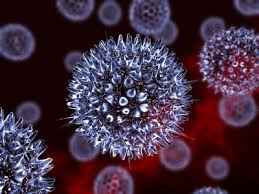Currently, no vaccine is available to treat HSV infections. The herpes simplex virus, also known as HSV, is an infection that causes herpes. Herpes can appear in various parts of the body, most commonly on the genitals or mouth. There are two types of the herpes simplex virus. HSV-1, also known as oral herpes, can cause cold sores and fever blisters around the mouth and on the face. HSV-2 is generally responsible for genital herpes outbreaks.
According to The American Social Health Association, under a microscope herpes simplex 1 and herpes simplex 2 are virtually identical, sharing approximately 50% of their DNA. Both herpes type 1 and herpes type 2 infect the mucosal surfaces of the body – most often the mouth or the genitals and then establish latency in the nervous system. For both herpes simplex 1 and 2, it is estimated that two thirds of those infected have no noticeable symptoms or no symptoms at all. Studies have shown that both herpes 1 and herpes 2 can be spread when there are no symptoms present.
Researchers from University of Illinois College of Medicine, Chicago, Illinois, USA report that recombinant HSV-1 with a mutation in the γ134.5 protein, a virulence factor, stimulates dendritic cell (DC) maturation which is dependent on TANK-binding kinase 1 (TBK1). When exposed to CD11+DCs, the mutant virus that lacks the amino terminus of γ134.5 undergoes temporal replication without production of infectious virus. Results suggest that activation of TBK1 by engineered HSV is crucial for DC maturation, which may contribute to protective immunity. Their findings were published in Scientific Reports.
Source: doi:10.1038/srep41461, healthline.com, herpesonline.org
